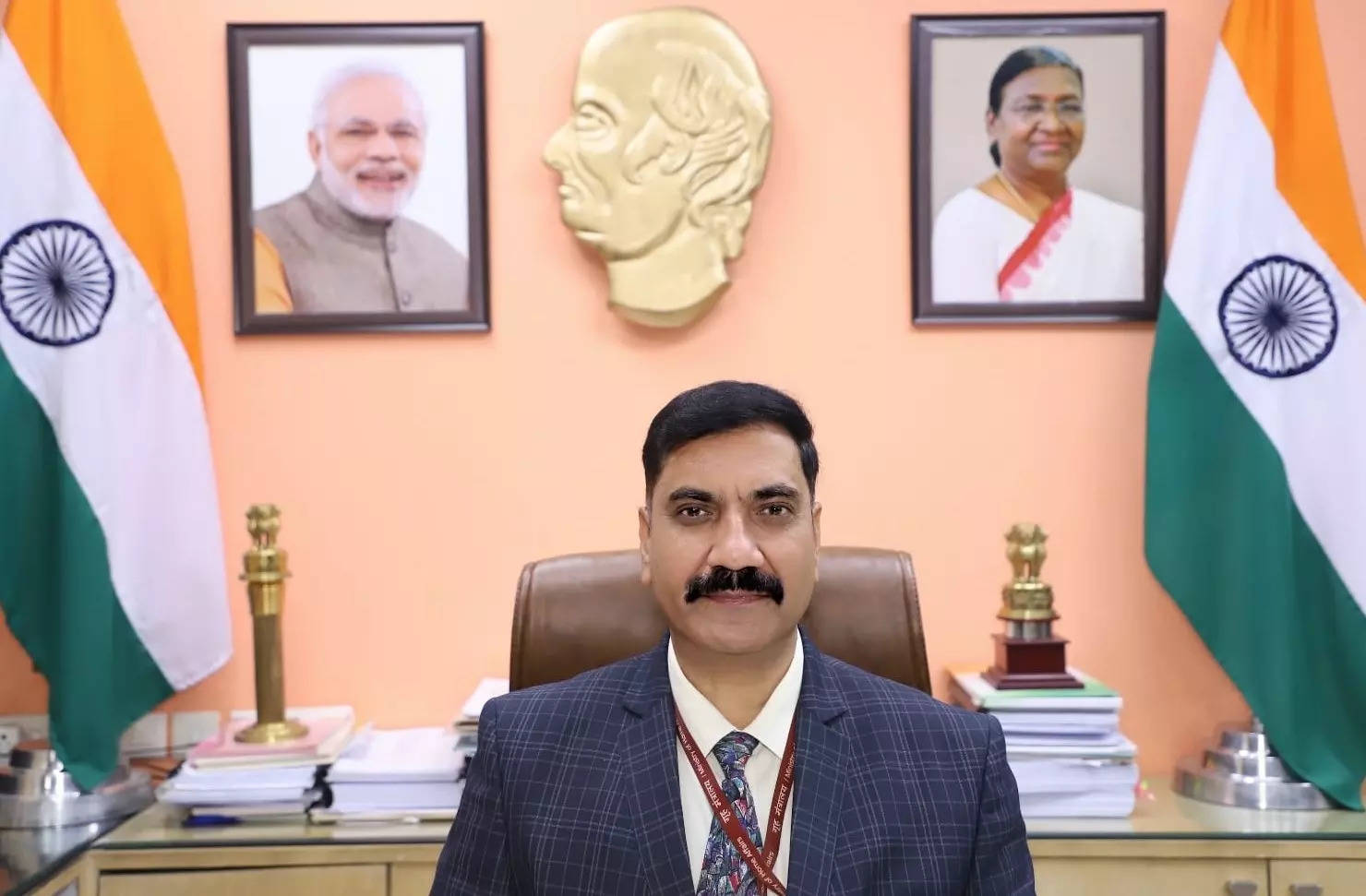
The World Homeopathy Day comes on April 10. In 2023, this day was celebrated by the Ministry of Ayush under the theme “Homoeoparivar – Sarvajan Swasthya, One Health, One Family”.
The Vice President of India, Jagdeep Dhankhar, who was the Chief Guest at the function in 2023, said, “We need a comprehensive and integrated approach to healthcare. I am convinced that this event will mark the beginning of a new initiative towards integrated health that will be practiced in Indian families and align with the theme of the event- Homoeoparivar as well as medical pluralism which is the hallmark of healthcare in India. Homoeopathy is connected to nature and who has termed it as the second largest and fastest growing system of medicine.”
In this year’s World Homeopathy Day celebrations, which is days away, the President of India is expected to be the Chief Guest. Dr. Subhash Kaushik, Director General, Central Council for Research in Homeopathy, Ministry of Ayush, Government of India, spoke to Anoop Verma, Editor (Desk), ETGovernment, on the mega plans for celebrating the World Homeopathy Day on April 10 this year. He also sheds light on the initiatives that CCRH is taking to conduct research and promote homeopathy.
World Homeopathy Day is being celebrated on April 10. On this day, what are you doing to promote homeopathy in India and abroad?
World Homoeopathy Day is celebrated on April 10, every year, to commemorate the birth anniversary of Dr. Samuel Hahnemann, the founder of homeopathy. CCRH, under the aegis of the Ministry of Ayush, has been celebrating World Homoeopathy Day since 2016, with participation from national and international experts, speakers, delegates and policymakers.
This year, the celebration will be historic. Hon’ble President of India, Smt. Draupadi Murmu shall be gracing the event and motivating the homeopath fraternity. There is an overwhelming response from homeopathy medical colleges, practitioners, clinicians, industries, associations in India as well as abroad. The global homeopath fraternity will unite on this day to show confidence in the homeopathic system of healing.
The theme of this year’s World Homeopathy Day is: ‘Empowering Research, Enhancing Proficiency’. The event will have deliberations from experts of national and international repute. Well researched publications from CCRH shall be released along with software based on Standard Treatment Guidelines (STGs). All this will be of great value to homeopath students and practitioners.
This platform will bring together policymakers, industry experts, regulators and researchers who play a key role in development and promotion of Homoeopathy across the globe. We are having many international delegates and speakers at the event.
What can be done to promote homeopathy in today’s young generation? Are you reaching out to the colleges and schools to make the youth aware of the effectiveness of homeopathy?
The youth of today will be the researchers of tomorrow. It is essential to inculcate them with the vision to take a scientific approach to traditional healing systems like homeopathy. We have to empower our youth and our students with the latest tools of research. They should have access to the methods of research and the outcomes of research. We want the youth to read homeopathic journals, like our Council’s inhouse UGC approved Indian Journal of Research in Homoeopathy (IJRH). The IJRH includes important research papers, which are of value to the young minds. To inculcate research aptitude in students, develop research environment in academic institutions, CCRH has entered in a MoU with 77 Homeopathy medical colleges during the World Homeopathy Day 2023. For the benefit of the youth, CCRH organizes capacity building webinars and seminars focusing on research methodologies, uniform data capturing.
What are the research initiatives and programmes that CCRH has implemented for the development of Homoeopathy in Ayush Sector?
Through its network of 35 institutes, many units and robust team of scientists, CCRH is conducting high quality research. The Council’s research activities have yielded reassuring results and carved out a future roadmap in the field of homeopathy. We have accomplished 188 clinical researches, 70 studies under fundamental and collaborative researches, standardization studies of 149 drugs, proving of 125 drugs, including 21 new drugs and clinical verification of 118 drugs. Based on the research evidence, CCRH has developed four volumes of STGs (standard treatment guidelines) in homeopathy for 67 disease conditions. Our aim is to promote this safe, gentle, cost-effective, quality-assured, and evidence-based treatment system. We are striving to encourage the global acceptance of homeopathy.
Has CCRH developed collaborations with academic and medical institutions in the country? Also what steps are you taking to enable authorities to deal with epidemics through homeopathy?
To undertake basic research, pre-clinical studies, clinical research requiring specialized expertise and infrastructure, the Council has signed MoU with institutes of repute: AIIMS, ICMR, IIEST, Delhi University, and other institutions. Keeping in view the rising incidence of infectious diseases, the council has established an epidemic cell to translate clinical success as a preventive intervention. Under this epidemic cell, CCRH has conducted significant studies on dengue, malaria, chikungunya, influenza-like illness, HIV, COVID-19, Acute Encephalitis and other diseases.
How is CCRH working with WHO for benchmarking, standardization and collaborations that will facilitate the global outreach of Homoeopathy?
CCRH has been associated with WHO for activities like development of technical documents on clinical research in traditional and complementary medicine. The Council follows the WHO’s ICD-10 classification for disease diagnosis, incorporated in digital health records from the OPD/IPD of its pan-India health facilities through A-HMIS–Ayush Hospital Management Information System, the digital platform maintained by the Ministry of Ayush. Standardised products have become a necessity due to globalization as raw materials and medicines are coming from different countries. We emphasize on harmonization or ‘convergence’ on regulatory standards. The pharma companies dealing with homeopathy medications are adhering to the WHO’s guideline on good manufacturing practices. The quality of medicinal products are at par with modern medicine. Discussions are being held for development of benchmarks for training in homeopathy–this is in line with the objective of the WHO Traditional Medicine Strategy 2014-2023.
During the period of covid pandemic CCRH played a vital role in ensuring that people had access to homeopathic treatments. How did you ensure the availability of homeopathy treatments to all sections of society during the covid period?
Covid 19 placed an unprecedented strain on the national healthcare system. The scientific committee of CCRH, with reference to available research evidence, recommended Arsenic Album as prophylaxis. After the release of the Ayush advisory recommending Arsenicum album 30 as prophylactic against Covid 19 disease, the medicine was distributed to many countries through medical organizations. The council undertook seven population-based prophylactic studies, seven add-on treatment studies, four preclinical studies, and two post Covid sequel studies, to understand the effect of homeopathic medicines in prevention of this disease. The studies have been published in peer-review international journals.
What kind of policies should the government of India have to further enhance the scope and reach of homeopathy medications in India?
I believe that the National Health Policy 2017 has been a game changer for Ayush healthcare systems. This policy is dedicated to mainstreaming the potential of Ayush within a pluralistic system of Integrative healthcare. It has greatly enhanced the scope of all AYUSH systems, including homeopathy, which is widely popular. Millions of patients use homeopathy for health promotion and treatment. It will be beneficial if it is integrated into various national health programmes, in addition to the current ones. India is strategically leading the world in homeopathy, due to strong government patronage, well established institutionalized network, and strong emphasis on quality and research-based practices.


